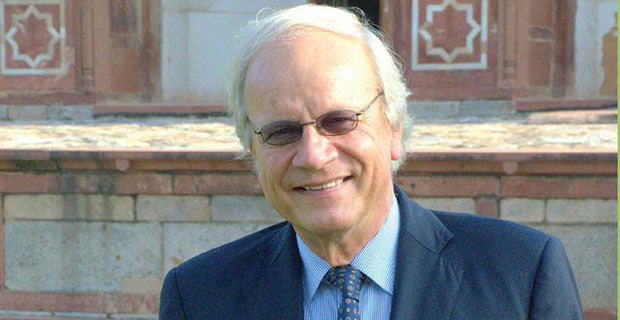“Indo-Dutch relationship is booming like never before”
Interview with H.E. Mr Alphonsus Stoelinga, Ambassador of the Netherlands in India
The Netherlands Board of Tourism and Conventions has reported an increase in Indian arrivals in the first quarter of 2017, a 19 per cent jump over the same period in 2016. What would you attribute this to?
Well, you know, we’ve also seen that the number of visas, we issue to Indians, has been going up 25 per cent each year. Twenty five per cent more visas means 25 per cent more tourists, students, businessmen. One of my reference points is February 2016, and I compare that to February 2018. That is because in March 2016 Jet Airways started to fly to Holland. Prior to that we had only one (KLM-)flight to Holland from India. So Jet Airways started with Delhi-Amsterdam and Mumbai-Amsterdam. From October 28, there will be Bengaluru-Amsterdam as well. In total, we now have five non stop flights between India and Amsterdam daily, and there is a possibility that Jet Airways will add another city in India from where to fly to Schiphol Airport in Amsterdam. So we have gone from one direct flight to five or even six. This translates to six times more aircrafts, six times more passengers, six times more tourists, six times more business people. In fact, Schiphol has slowly but surely turned into a hub in Europe for Indian passengers. Jet Airways and KLM do a code-sharing. That means if one buys a Jet Airways ticket from an Indian city to Oslo or Berlin, the last leg (Amsterdam-Oslo or Amsterdam-Berlin) is done by KLM. Likewise, if a Dutch flyer buys a ticket from Amsterdam to Chennai via Delhi or Mumbai, the Indian sector is taken care of by Jet Airways. The airlines share the profits on this code-sharing. So these two airline companies are working very closely together. Jet Airways also has one flight between Amsterdam and Toronto. So if you go to Schiphol Airport at about 10.00 in the morning, you see four Jet Airways aircraft -one that came from Delhi, another from Mumbai, another from Bengaluru, and yet another from Toronto. In March, the possibility is high that this figure will go up to five. So, the 19 per cent increase that you talk about is very logical.
We understand that Business Missions from India to the Netherlands have gone up. We’re sure that the Embassy in Delhi has contributed significantly towards this. Your comments please…
That is indeed a very nice conclusion. Well, you know, the thing that I always say is that if you have such a connectivity increase, then of course travel and business will be enhanced. But the most important is, that airlines start flying between destinations, because there is heavy business going on, which makes sure that their planes will be full of passengers and cargo. Look at the Chinese, they create these corridors, OneBeltOneRoute. I say it is not necessary for governments to create corridors, because if the business is there, the corridor comes by itself. Nobody told Jet Airways to create these flights. They did it by themselves because the business was there, and they run very good business. On the business delegations you mention, we, of course, had the visit of Prime Minister Modi to the Netherlands in June. Our Prime Minister had visited in 2015. These visits are important and significantly leave their mark. During the meeting between the two Prime Ministers, the most important things discussed were on the subjects of water, agriculture and finance. In order to introduce Dutch technologies in India, you also need financing of those technologies. These were discussed. The meeting provided an enormous impetus to the ongoing relations. I can tell you that not only for travelers, but also for exports, the Netherlands is a hub for India in Europe. Twenty per cent of all your exports to Europe, enter Europe through the Netherlands. Also from the investment perspective, plenty of Indian companies see the Netherlands as an ideal location to set up their European headquarters and their European distribution base. Look at TATA Steel. They diminished their operations in Britain, they joined forces with a German company and will have their European headquarters in the Netherlands. The reason being that the Netherlands is the most ideal location in Europe from many aspects. Since Brexit was announced sometime in the middle of 2016, the number of Indian companies establishing themselves in the Netherlands is up more than 300 percent. The last thing investors want is uncertainty. The Netherlands presents the best alternative for Indian investors post-Brexit. Our government is setting targets on the number of Indian companies to attract to the Netherlands, the investment volume concerned and on the number of jobs to be created in the Netherlands in this way. It’s one of the reasons, we’ve opened a Consulate General in Bengaluru. In February 2017 I opened the Shell Technology Centre in that city. They have 2,000 engineers and the numbers will increase to 5,000. We are talking of engineers here, not workers. These are incredible figures, and yes, things are very much booming!











Comments.